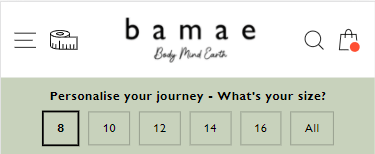Of all the metrics by which we have been, for as long as we can remember, inclined to measure ourselves – our grades, our height and weight, our various abilities – none are as difficult to define, or decipher, as the accumulation of social currency. Without even realising it, we find ourselves at all stages in life eager to impress others, to not only be liked, but needed, respected, feared and envied. We are, in short, desperate to be valued.
But this is fair enough. It is good that many of us still feel we should, in an age of increasing social atomisation, incorporate others into our sense of self-worth and purpose. The problem is it’s very easy to get carried away with being valued in this way, since it treats us, and those we want to impress, as a commodity, something as superfluous as the material wealth we are so hungry to attain.

The Changing Purpose of Friends
At the same time, we often do not even know what we will do with people once we have befriended them. Friends are now primarily for providing us with a sense of security, rather than interesting conversations. There’s a tribal element to our companionships that we probably don’t think too much about. It is not until our development into adulthood that we even begin to fully grasp the elaborate rules of social etiquette – how to stay interesting, to not offend, to know how, and when to talk and about what. If we try too hard with people our entire operation risks becoming undone. Better to have them forever orbiting around us – and not too close – than to be smothering us.
The intense yet simple nature of friendships between children, built from naive and impetuous instincts, little resembles the tangled, illogical nature of those that they would appear later in life. For adults, the term ‘friend’ assumes a much looser definition: it collectively refers to our previous friends who have been all but neglected (and in turn have neglected us), the colleagues we tolerate the most (or despise the least), the so-called ‘connections’ who, somehow, offer the prospect of aiding our career advancement, or development of our business. This is on top of the any number of other people outside our family we feel obligated to maintain communication with (or feel guilty for not doing so).
Pleasure becomes business. Observe the ‘LinkedIn effect’ – new acquaintances are reduced to a series of accolades, a career, a company, a vocation. Despite its functionality, it has ended up being every bit as miserable and vacuous as Facebook – as well as functionally very similar. Those few genuine friendships which are practically unconditional are mixed up with the countless others of a more questionable nature that depend largely on their social utility to us. This is the difference between those we can appreciate for who they are, and those who we use as a measuring stick for our own social and financial success.

A savvy investor is not only going to back a few ventures that are close to their heart, but strive for an impractically diverse portfolio; nor will a commercial fisherman cast their hook out on a dinky wooden boat in the traditional style, even if it has integrity, but instead cut through the ocean on a giant trawler and pillage the waters with a devouring net. In the same vein, the business of making friends is a greedy one: we feel the need to make as many as possible, in all sorts of different avenues, so that not only will we never be at a loose end, but we can, in theory at least, perpetually stave off the threat of loneliness. Most of all, because of the prevalent need to appear as a success in our society, accumulating contacts is also a sort of insurance against becoming a social outcast, someone who has dropped out of life and faded into obscurity.
Collective Judgement
As a result, we feel we have to impress not only those we know, but those we don’t, even those who may not have anything much to do with us. For certain cultures, in Asia, for instance, it is perhaps not surprising that a greater emphasis on the traditional family unit goes hand-in-hand with an obsession with keeping up appearances. The failings of an immigrant can have massive repercussions for their family in a different continent, since individuals are perceived as ambassadors of their families. However, Western cultures can be equally unforgiving of those who break social expectations – or at least it would appear this way. For many, the most damning sentence they can receive is being ignored, for this suggests an contempt much more grievous than that of the occasional critical comment.
In this way making friends has another function – to understand what they think, and by extension, what the outer world thinks, about us so that we can adapt a little bit better, so that we can get an advantage. There is nothing, after all, so terrifying as the unknown. Social unknowns, such as the meeting of a new person or the attempted assimilation into a new group, once meant life or death –and still largely do to our brains.

Trading Competitiveness with Empathy
This is a useful mechanism, of course, but it has its issues too. If we do not learn to let down our guard, to be vulnerable, and to stop obsessing with appearances then we cannot expect our acquaintances to do the same. It is a mistake to leave these customs for more intimate encounters, since they are often exclusive, a major social and emotional investment. Friendships, on the other hand, are far less limited – the lack of commitment means it is possible to find vulnerability, wit and compassion in any number of willing agents, with the only drawback being that they require us to be vulnerable on a much larger scale.
But we can start with a smaller exercise: stop comparing ourselves to our neighbours.
The modern idea of a ‘neighbour’ does not need to be restricted to someone who lives next to us, or even within our general vicinity, as it is often taken to mean. Religiously it is interpreted as ‘fellow man’ with connotations of a kind of universal fraternity and compassion. Taking from both of these meanings, we could see the neighbour as somebody on the same trajectory as us, somebody whose lived experience bears many similarities to ours. We should not fixate on what they have over us, instead thinking about them in a more nuanced way: how similar is their experience to ours and how is it different? What hopes and fears might we share? What could we learn from them and they from us? We don’t even need to know them that well to be asking these questions, but they can nonetheless guide us towards a more healthy way of comparing ourselves with others.

But what about the people who are nothing like us, who seem to lead infinitely better and more glamourous lives and are apparently rubbing it in at every opportunity? While this is by no means a new problem, it has been exacerbated by the self-promotional nature of social media. We can quit it, of course (and many have, and do, to their great mental benefit) but this is only part of the solution. The next stage is redefining what we think of as success.
Success should not solely be about impressing others, and as many others as possible. Even those that achieve this soon find they must now forever live up to their reputation, which is exhausting, and will inevitably lead to disappointment when they don’t. Some people will play this game well,and usually at the expense of everything and everyone else in their lives, but it’s safe to assume that most people will feel they need something a bit more from life, and not just the endless amounts of more they are endlessly enticed with.
No, this bit more is something entirely different. It’s the need to validated not by the entire world, but a select few important people who genuinely provide meaning to their lives. It’s a bit more time for the things that matter, stability, simple comfort and a sense of belonging, things that are not so glamourous that they would immediately make a neighbour jealous, but that nonetheless feel like the only kind of success worth having to those who can put their lives into perspective.




